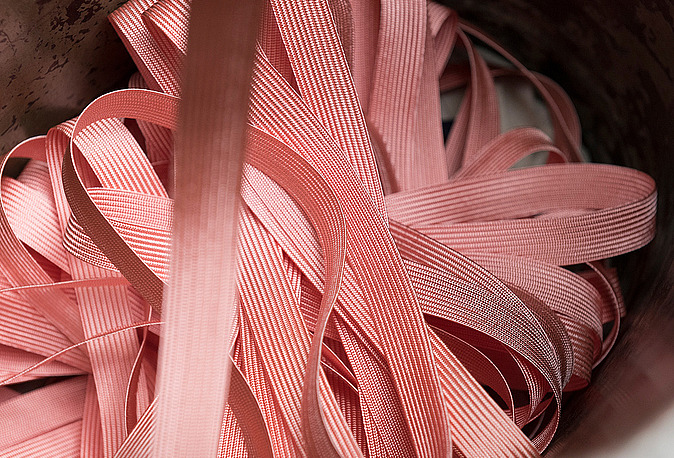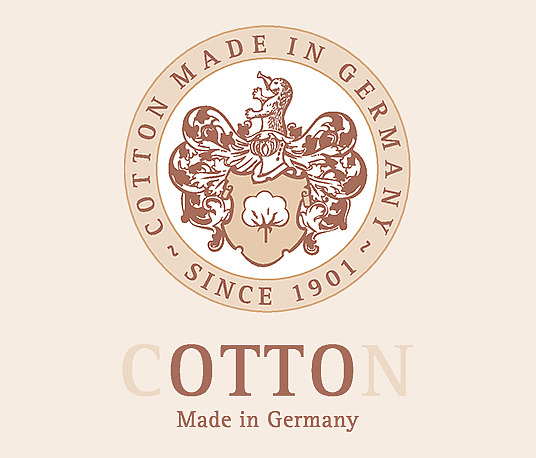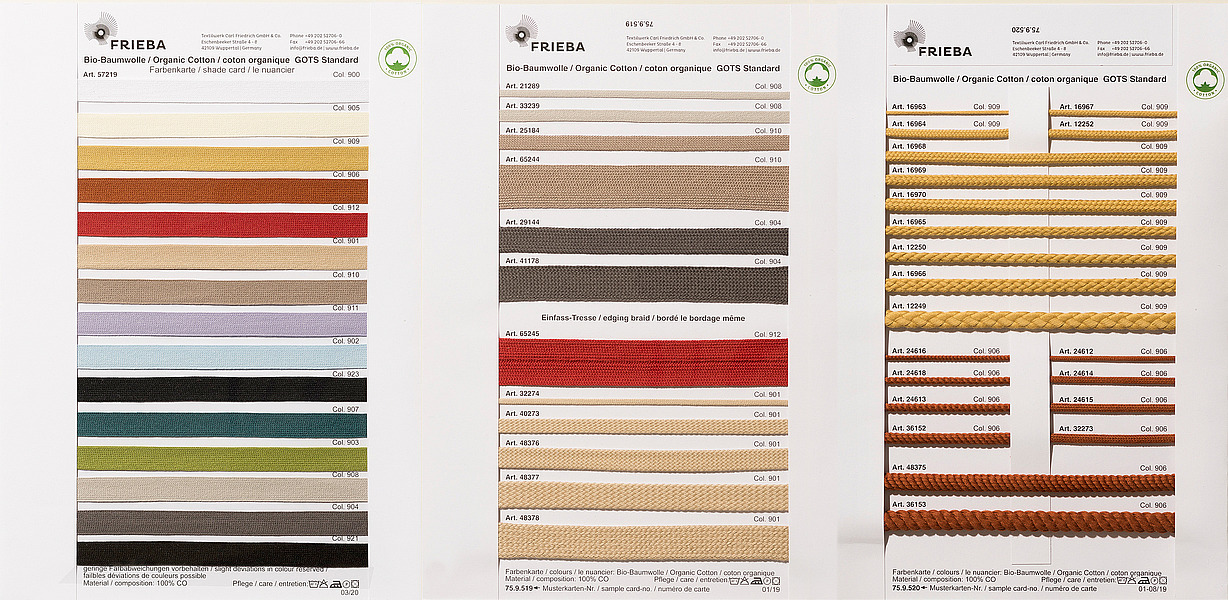For fashion designers around the world, it is now considered good form to think about one's own ecological footprint and how environmentally sound one’s own creations are. But how sustainable can textile products be in a global sector? What matters? Which certificates are available? What needs to be kept in mind when buying threads or finished decorative textiles? In this blog post, we would like to give you a brief overview.
By its very nature, the textile industry doesn’t exactly have the best reputation when it comes to sustainability and protecting the climate. And yet considerable efforts are being made to keep any consequences for nature and the environment to a minimum. One option when purchasing textile articles is to find out in accordance with which international standards they have been manufactured and which materials were used. When it comes to our braided, crocheted, and woven articles as well as tapes, piping, cords, braids or galloons, this primarily concerns the thread we use.
How can I recognise sustainable textile articles?
All threads processed at FRIEBA comply with the Öko-Tex 100 standard. Most have a certificate from the product class 1. We also manufacture our articles, upon request, in organic cotton (GOTS) in select dyes or in recycled polyester.
Specifically, this means that all materials and/or threads, which we use to produce our articles comply with the high requirements of the Oeko-Tex standard 100 and a corresponding certificate is in place. In some cases, corresponding ecological information from the manufacturer of the primary materials is also available. With respect to processing, we always ensure that no chemical or wet work has been performed on the articles, which could have an adverse effect on sustainability or the environmental footprint or the values documented and assured on the certificates.
Our products therefore comply one hundred percent with the Öko-Tex 100 standard, although we ourselves are not certified. We are therefore not able to use the Oeko-Tex label on our articles although they comply with the standard. However, we will support you with the certification of your products and will provide you with the relevant documents.


What does the Oeko-Tex standard 100 label stand for?
The Oeko tex standard 100 label certifies all kinds of textile products. This eco-label therefore guarantees that the relevant articles have been extensively tested for harmful substances and that they are not harmful to health. The test is performed independently and is on the basis of strict criteria, which are uniform worldwide and are adjusted and updated at least once a year based on scientific findings. The limits defined in the Oeko-Tex catalogue of criteria for the 100 standard even exceed national and international requirements.
Which Oeko-Tex product class do I need?
Textile products, which are certified in accordance with the Öko-Tex standard 100, are also divided into different product classes. For instance, textiles in the product class 1, for example, are saliva-fast and have extremely low pollutant values. As a result, they fulfil the highest requirements with respect to skin tolerability; in this context, one also tends to refer to them as baby-safe. They are therefore suitable, for example – but of course not only – for use in baby clothing and other textile products, which have to fulfil special requirements in terms of skin tolerability.
Most of the threads processed in our tapes, piping, cords, braids and other textile articles comply with this product class 1. In some of our articles, we use threads from the product class 2. This class contains materials, which are generally not harmful when in direct contact with the skin such as blouses, shirts, underwear and bedding.
This also includes, for example, metallic threads, which have a glittering effect thanks to their special metallic coating and can also be used to set fashionable accents, for example, for exclusive evening attire or festive blazers and blouses. These effect threads are also known under the brand name Lurex or Elirex.
What does the GOTS seal mean?
GOTS certification can be used to label ecological and natural textiles. They comply with the global organic textile standard; it is dedicated to promoting sustainable textile production. Testing occurs along the entire production and supply chain from raw material extraction up to manufacturing. For instance, the GOTS standard specifically states where which chemical additives are permitted. Articles which are certified in accordance with the GOTS standard are tested for the following points:
- Ban on harmful additives (e.g. solvent heavy metals, etc.)
- Use of environmentally-friendly production and processing methods
- Compliance and continual improvement of working conditions
- Use of fibres from organic farming
Furthermore, articles that bear the GOTS seal also take into account the social aspects of production. For instance, production operations fulfil at least the requirements of the International Labour Organisation (ILO). Specifically, this means that, for example, the use of children or forced labourers is prohibited. Furthermore, the employers undertake to see to safe working conditions and pay minimum wages. The criteria, according to which testing occurs, are being continually improved and adapted to new developments.
The following associations are behind the GOTS:
- Internationaler Verband der Naturtextilwirtschaft (IVN) Germany
- Organic Trade Association (OTA) USA
- Organic Trade Association (OTA) Japan
- Soil Association (SA) England
